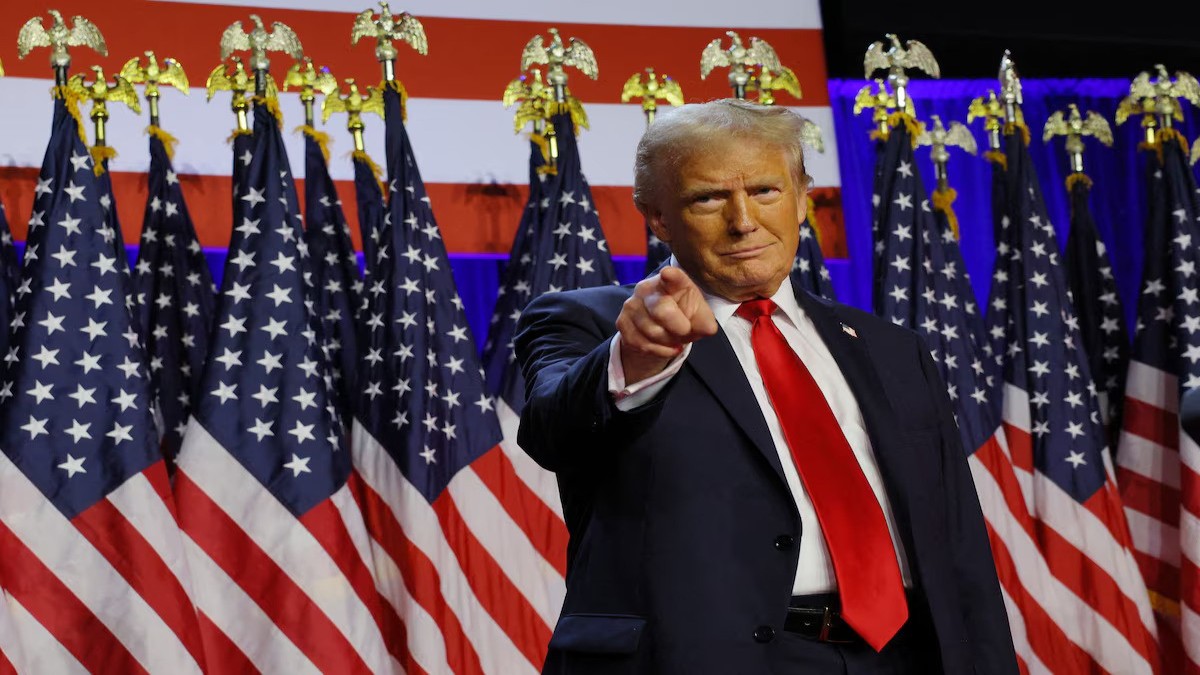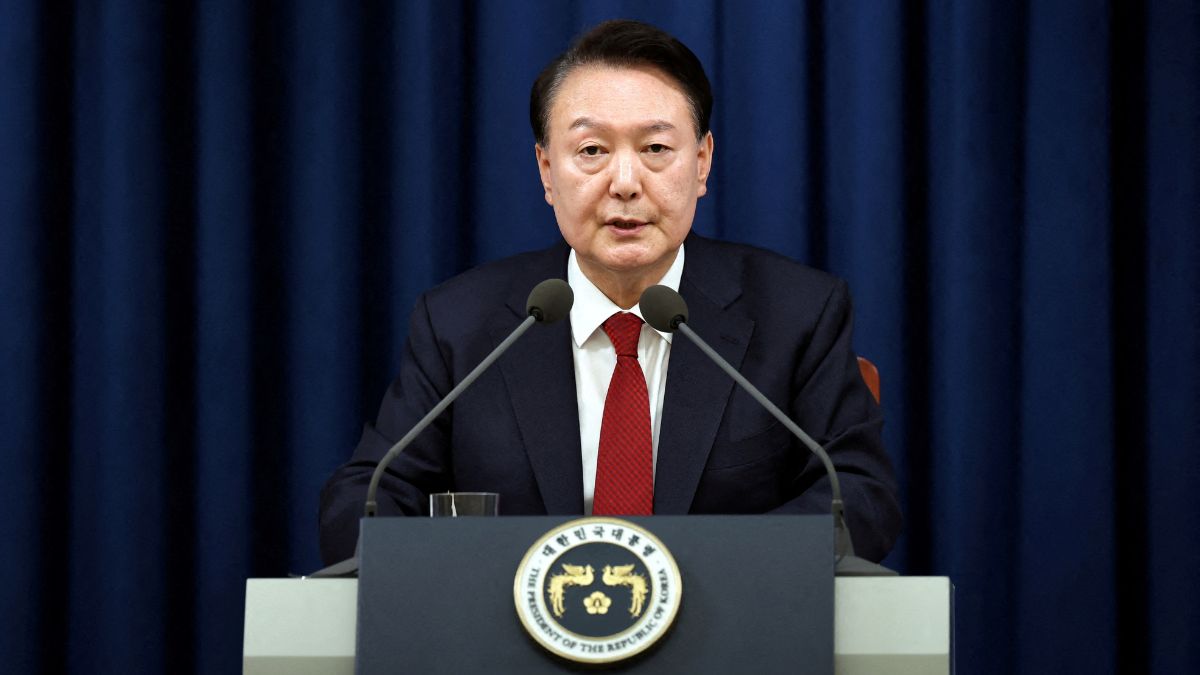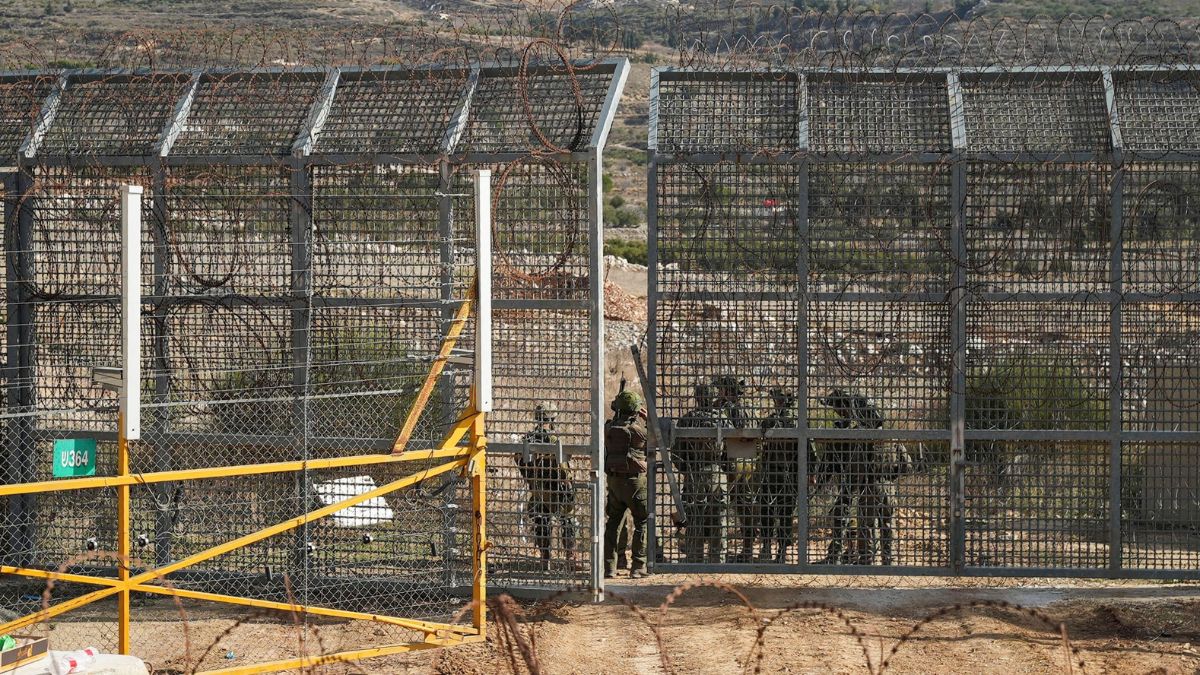Donald Trump has been elected the 47th President of the United States.
Trump’s remarkable political return to the White House comes four years after he was voted out four years ago.
He then refused to accept defeat four years ago, sparked a violent insurrection at the US Capitol from his supporters, was convicted of felony charges and survived two assassination attempts.
With a win in Wisconsin, Trump cleared the 270 electoral votes needed to clinch the presidency.
The victory validates his bare-knuckle approach to politics. He attacked his Democratic rival, Kamala Harris, in deeply personal – often misogynistic and racist – terms as he pushed an apocalyptic picture of a country overrun by violent migrants. The coarse rhetoric, paired with an image of hypermasculinity, resonated with angry voters – particularly men – in a deeply polarised nation.
Trump has claimed that the US has given him an “unprecedented mandate" and that his re-election will “help this country heal.”
But what does this development mean for the United States and the world?
Let’s take a closer look:
For United States
As per Economic Times, Trump has vowed to place a high tariff on imports – from 10 per cent to up to 60 per cent in case of Chinese goods.
He has also vowed to bring taxes on tips and Social Security down to nil.
He has also vowed to bring the corporate tax rate down to 15 per cent.
“I reduced the corporate tax to 21%. I’d love to bring it down to 15%," Trump told Fox News.
He has also vowed to carry out a programme of mass deportations – which some argue would crash the US economy.
Catch all updates on US presidential election in our live coverage hereIn his second term, Trump has vowed to pursue an agenda centered on dramatically reshaping the federal government and pursuing retribution against his perceived enemies.
There will be far fewer checks on Trump when he returns to the White House. He has plans to swiftly enact a sweeping agenda that would transform nearly every aspect of American government. His GOP critics in Congress have largely been defeated or retired. Federal courts are now filled with judges he appointed.
The US Supreme Court, which includes three Trump-appointed justices, issued a ruling earlier this year affording presidents broad immunity from prosecution.
Trump’s language and behaviour during the campaign sparked growing warnings from Democrats and some Republicans about shocks to democracy that his return to power would bring.
He repeatedly praised strongman leaders, warned that he would deploy the military to target political opponents he labelled the “enemy from within,” threatened to take action against news organizations for unfavourable coverage and suggested suspending the Constitution.
As he prepares to return to the White House, Trump has vowed to swiftly enact a radical agenda that would transform nearly every aspect of American government. That includes plans to launch the largest deportation effort in the nation’s history, to use the Justice Department to punish his enemies, to dramatically expand the use of tariffs and to again pursue a zero-sum approach to foreign policy that threatens to upend longstanding foreign alliances, including the NATO pact.
When he arrived in Washington 2017, Trump knew little about the levers of federal power. His agenda was stymied by Congress and the courts, as well as senior staff members who took it upon themselves to serve as guardrails.
This time, Trump has said he would surround himself with loyalists who will enact his agenda, no questions asked, and who will arrive with hundreds of draft executive orders, legislative proposals and in-depth policy papers in hand.
For the world
While campaigning to regain the US presidency, Donald Trump said that he would be able to end Russia’s war in Ukraine in 24 hours, warned that Israel would be “eradicated” if he lost the election and vowed sweeping new tariffs on Chinese imports.
Now that Trump has claimed victory, many at home and abroad are asking an urgent question: will he make good on his long list of foreign policy threats, promises and pronouncements?
The Republican has offered few foreign policy specifics, but supporters say the force of his personality and his “peace through strength” approach will help bend foreign leaders to his will and calm what Republicans describe as a “world on fire”.
They blame the global crises on weakness shown by President Joe Biden, though his fellow Democrats reject that accusation.
America’s friends and foes alike remain wary as they await Trump’s return to office in January, wondering whether his second term will be filled with the kind of turbulence and unpredictability that characterised his first four years.
Trump’s 2017-2021 presidency was often defined on the world stage by his “America First” protectionist trade policy and isolationist rhetoric, including threats to withdraw from NATO.
According to BBC, it remains an open question whether he will actually withdraw the US from the treaty.
At the same time, he sought to parlay his self-styled image as a deal-making businessman by holding summits with North Korea, which ultimately failed to halt its nuclear weapons program, and brokering normalisation talks between Israel and several Arab neighbours, which achieved a measure of success.
“Donald Trump remains erratic and inconsistent when it comes to foreign policy,” analysts for the European Council on Foreign Relations wrote in a blog post during the US campaign.
“Europeans are still licking their wounds from Trump’s first term: they have not forgotten the former president’s tariffs, his deep antagonism towards the European Union and Germany,” they said.
Trump and his loyalists dismiss such criticism, insisting that other countries have long taken advantage of the US and that he would put a stop to it.
For Ukraine
How Trump responds to Russia’s war in Ukraine could set the tone for his agenda and signal how he will deal with NATO and key US allies, after Biden worked to rebuild key relationships that frayed under his predecessor.
Ukrainian President Volodymyr Zelenskiy congratulated Trump on social network X, describing Trump’s peace-through-strength approach as a “principle that can practically bring just peace in Ukraine closer”.
Trump insisted last year that Russian President Vladimir Putin never would have invaded Ukraine in 2022 if he had been in the White House, adding that “even now I could solve that in 24 hours”. But he has not said how he would do so.
As per The Conversation, Trump will is expected to try to negotiate a ceasefire between Russia and Ukraine.
However, this will likely result in a settlement that lets Russia keep the Ukrainian territory it has taken including Crimea.
BBC quoted a research paper from two ex-Trump national security chiefs in May as saying that the United States should continue to give Ukraine weapons but make it contingent on Kyiv holding peace talks with Moscow.
Trump could also accept Putin’s demand that Nato not accept Ukraine as a member.
He has also been critical of Biden’s support for Ukraine and said that under his presidency the US would fundamentally rethink, NATO’s purpose. He told Reuters last year that Ukraine may have to cede territory to reach a peace agreement, something the Ukrainians reject and Biden has never suggested.
NATO, which backs Ukraine, is also under threat.
Trump, who has railed for years against NATO members that failed to meet agreed military spending targets, warned during the campaign that he would not only refuse to defend nations “delinquent” on funding but would encourage Russia “to do whatever the hell they want” to them.
“NATO would face the most serious existential threat since its founding,” said Brett Bruen, a former foreign policy adviser in the Obama administration.
For West Asia
Trump will also confront a volatile West Asia that threatens to descend into a broader regional conflict. Israel is fighting wars in Gaza and Lebanon while facing off against arch-foe Iran, even as Yemen’s Houthis fire on commercial shipping in the Red Sea.
As per The Conversation, Trump is likely to continue his unbridled support of Israel and Saudi Arabia.
He has expressed support for Israel’s fight to destroy Hamas in the Palestinian enclave but has said Prime Minister Benjamin Netanyahu, a Trump ally widely believed to have favoured his return to power, must finish the job quickly.
Trump is expected to continue arming Israel, whose existence he said would have been endangered if Harris had been elected - a claim dismissed by the Biden administration given its staunch support for Israel.
His policy toward Israel likely will have no strings attached for humanitarian concerns, in contrast to pressure that Biden applied in a limited way. Trump may give Netanyahu a freer hand with Iran.
But Trump could face a new crisis if Iran, which has stepped up nuclear activities since he abandoned a nuclear deal with Tehran in 2018, rushes to develop a nuclear weapon.
As per BBC, Trump is likely to revert to his first-term policies of ‘maximum pressure’ against Iran and killing its officials – like he did General Qasem Soleimani.
When Trump was last in the White House, he presided over the signing of the Abraham Accords between Israel, the United Arab Emirates and Bahrain. But those diplomatic deals did nothing to advance Palestinian statehood in the West Bank and Gaza.
Still, Trump is likely to push for historic normalisation of relations between Israel and Saudi Arabia, an effort initiated during his first term and which Biden has also pursued.
For China
As per The Conversation, Trump is likely to go harder on China in his second term.
Trump made a tough stance toward China central to his campaign, suggesting he would ramp up tariffs on Chinese goods as part of a broader effort that could also hit products from the EU. Many economists say such moves would lead to higher prices for US consumers and sow global financial instability.
A Trump White House is likely to increase import tariffs, and he has talked a great deal about using them to target China. But Trump is also just as likely to be open to pragmatic, transactional deals with Chinese president Xi Jinping.
He has threatened to go further than his first term when he implemented a sometimes chaotic approach to China that plunged the world’s two biggest economies into a trade war.
But just as before, Trump has presented a mixed message, describing Chinese President Xi Jinping as “brilliant" for ruling with an “iron fist”.
For India
While some believe Trump targeting China with tariffs might benefit India, others warn that New Delhi might find itself in similar crosshairs.
Adrian Mowat, Investor in Hong Kong SAR, told CNBC that Trump may impose tariffs on US companies that have many IT employees in India.
As per Economic Times, India might face new tariffs which could hit sectors such as IT, pharmaceuticals, and textiles.
His second term could also see further restrictions on the H1-B visa programme.
Taiwan
Trump has also insisted that Taiwan should pay the US for defence.
But he has said China would never dare to invade democratically governed Taiwan, which Beijing claims as its territory, if he were president.
Some have argued that Trump as president will bring chaos to the world.
“At best, all of this spells greater uncertainty and instability – not only after Trump’s inauguration but also in the months until then,” the piece in The Conversation noted.
“At worst, it will prove the undoing of Trump’s self-proclaimed infallibility. But by the time he and his team come to realise that geopolitics is a more complicated affair than real estate, they may have ushered in the very chaos that they have accused Biden and Harris of.”
With inputs from agencies
Get all the latest updates of US Elections 2024


)
)
)
)
)
)
)
)
)



